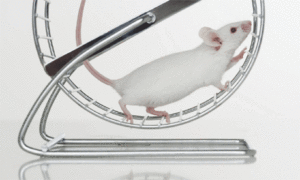Our research team has used “work smarter” to mean lots of things:
- Find a better, simpler way, that makes a task or event easier to repeat with high consistency
- Think about how to streamline to reduce effort and save time
- Get it done so we can use the found time for our passions
 We love productivity tips and Lean improvement tools equally. We want to compress the total “task time” required during a work week while still delivering excellent results. Reducing the task time frees us to be creative. It also gets us out of the office or lab to attend intriguing seminars, to flexibly meet family needs, be physically active, run errands, and to read, think, relax, and recharge. Those activities make us more effective at work and in life. We are actively rejecting the zillion hour work-week.
We love productivity tips and Lean improvement tools equally. We want to compress the total “task time” required during a work week while still delivering excellent results. Reducing the task time frees us to be creative. It also gets us out of the office or lab to attend intriguing seminars, to flexibly meet family needs, be physically active, run errands, and to read, think, relax, and recharge. Those activities make us more effective at work and in life. We are actively rejecting the zillion hour work-week.
We’re aiming for predictability in essential operations and protected time to concentrate and explore. Admittedly this takes constant cultivation to avoid ruts. We hope to reinforce that respecting each individual’s time means it shouldn’t be wasted on interruptions, inefficient processes, poor communication, or interminable meetings. We like to talk about how to work smarter – it’s liberating.
This week we met the dark twin of #worksmarter up close and personal. This is the version that is rejected when it crops up in time management blogs and tweets when it is code for pressurized work or for filling every moment of the whole day, and night, with tasks (such as the metaphor of big rocks, smaller rocks, and then pouring sand around them to fill all the spaces).
Here’s our story: A team member who serves in a key role across research groups was told her salary support for the role in another team’s work needed to be reduced. We were confident she was giving more time, including personal time, than currently covered on the grant because she was dedicated to the research question and to the research population. 
To maintain her contributions and match the needs of the project, and to be in compliance with effort reporting, something had to give. Senior investigators across projects conferred. Unilateral insistence ensued that a dedicated, engaged research team member would have to “work smarter” and just “figure out how to get the recruitments done in less time.” Work flow was examined, schedules were reviewed, time in transit to patient visits was assessed and both teams agreed it was a tough puzzle because the responsibilities needed more time not less.
Work smarter CANNOT include:
- Expecting the most junior (students, postdocs, early career investigators) to fill all personnel gaps and shoulder any demands made on them.
- Assuming the work load is acceptable if projects are being accomplished.
- Normalizing personal sacrifice as a requirement for being a “team player” or being invested in one’s career.
- Celebrating heroics of having a restricted life outside of work, sleeping in the lab multiple nights, etc.
- Failing to properly budget for researchers and staff on projects and wanting all involved to “figure it out.”
For our story the negotiation proceeds and we’re not at a satisfactory conclusion. But the immediately above version of work smarter doesn’t work. It is a recipe for demoralizing talented individuals and for burn-out among those who care most about their work and are already prone to over-extend themselves. The external challenges in research are substantial enough that we should be girding ourselves and our teams to withstand and thrive under pressure, not expecting gratitude for work that becomes undoable. We need to stay vigilant, gauge these pressures, and be sure to have escape valves that allow all team members to speak up and ask for solutions that reject heroics. Team meetings need feasibility check-ins.
We cannot trap our staff and faculty in over commitment and imply blame that they are not smart enough to do their work properly. Now we’re at a loss for a new rallying cry. Work smarter is starting to leave a bitter taste.
